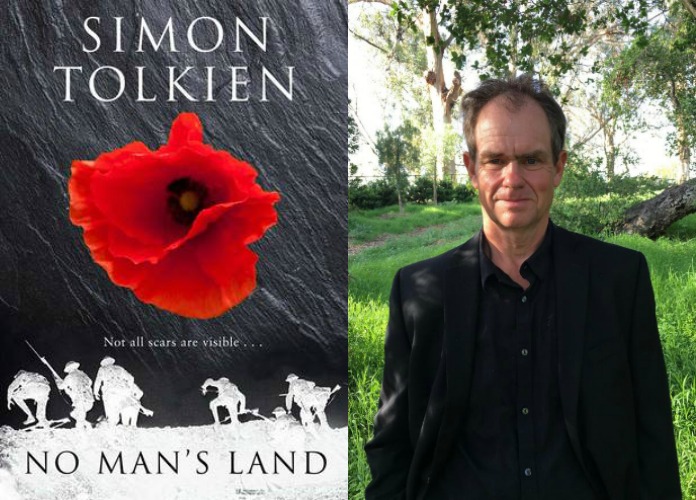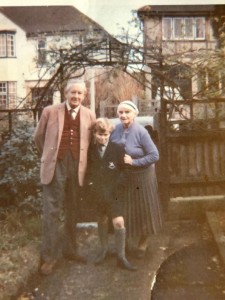
No Man’s Land by Simon Tolkien and the author himself. (Source: The Oxford Times)
No Man’s Land is the latest novel written by Professor Tolkien’s grandson, Simon Tolkien, it has been published last June 30 by Harper Fiction, 100 years on from the eve of the battle at The Somme when more than 60,000 troops were injured or killed. The story is, in fact, based on his famous grandfather’s experiences there. Here is the synopsis:
From the slums of London to the riches of an Edwardian country house; from the hot, dark seams of a Yorkshire coalmine to the exposed terrors of the trenches, Adam Raine’s journey from boy to man is set against the backdrop of a society violently entering the modern world.
Adam Raine is a boy cursed by misfortune. His impoverished childhood in the slums of Islington is brought to an end by a tragedy that sends him north to Scarsdale, a hard-living coalmining town where his father finds work as a union organizer. But it isn’t long before the escalating tensions between the miners and their employer, Sir John Scarsdale, explode with terrible consequences.
In the aftermath, Adam meets Miriam, the Rector’s beautiful daughter, and moves into Scarsdale Hall, an opulent paradise compared with the life he has been used to before. But he makes an enemy of Sir John’s son, Brice, who subjects him to endless petty cruelties for daring to step above his station.
When love and an Oxford education beckon, Adam feels that his life is finally starting to come together – until the outbreak of war threatens to tear everything apart.

Simon Tolkien with his grandparents JRR Tolkien and Edith Tolkien outside their house in Oxford in 1966. (Source: The Oxford Times)
Although the fact Professor Tolkien fought in the Somme and survived he never spoke about it, but he managed to communicate his feelings about it through his works, especially The Lord of the Rings, according to Simon Tolkien. In a recent interview with The Oxford Times, he said: “You can understand how someone who experienced the Somme would have written it – there are passages that take you straight back to what the trenches were like. If you lived in Birmingham and Oxford and then found yourself in a trench in July 1916 it would change your imagination. It made him feel that technology was an evil and the guns slaughtering each other was where the world ended. That came out in characters like Saruman and Sauron.”
The author also shared how the part his grandfather played in the First World War had always intrigued him, inspiring him to write this novel: “I was always really interested in the First World War when I was a kid. I was born in 1959 so it wasn’t ancient history, and my grandfather had fought in the Somme, not that he ever spoke about it. I grew up in Watlington, and saw all the names on the war memorial and realised what a blow that was to such a small place.”
You can read the full article on The Oxford Times and Simon Tolkien’s official website.


